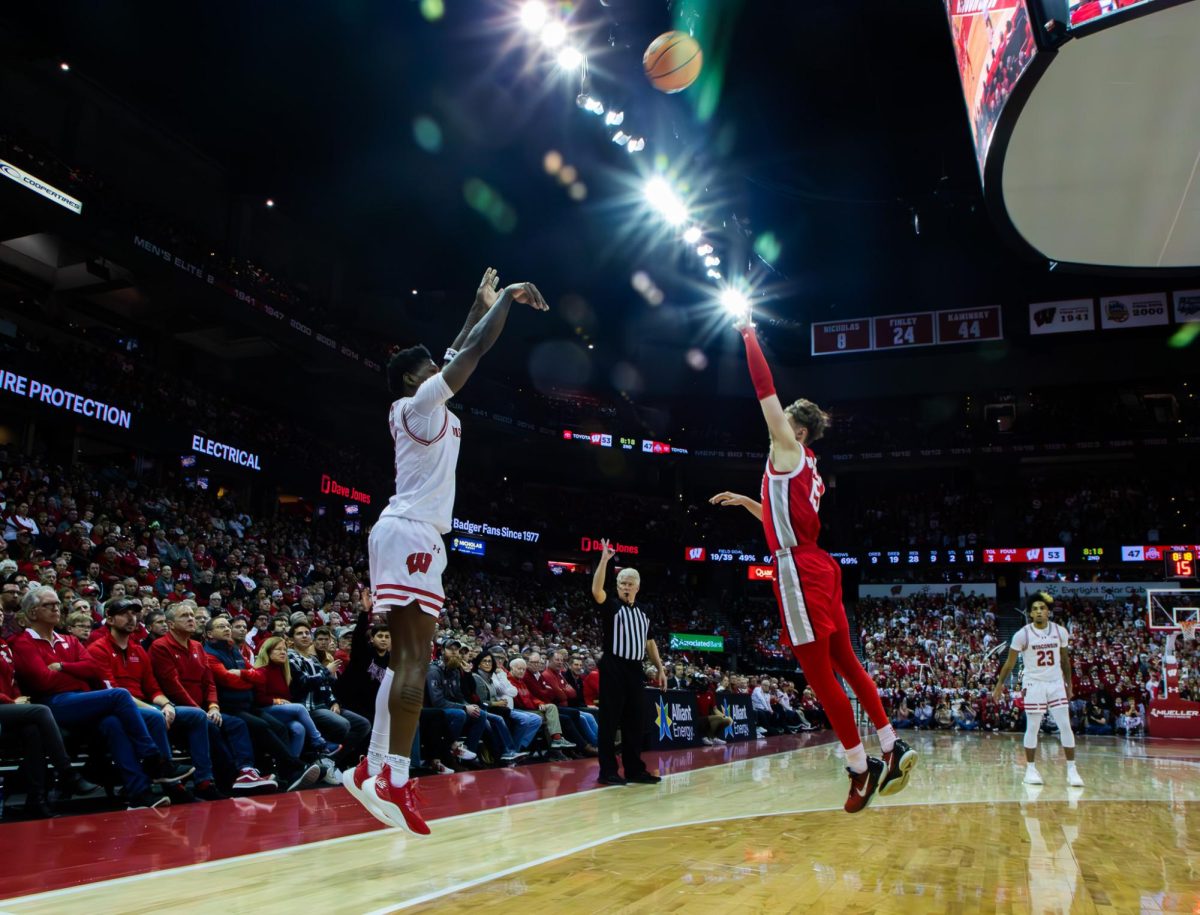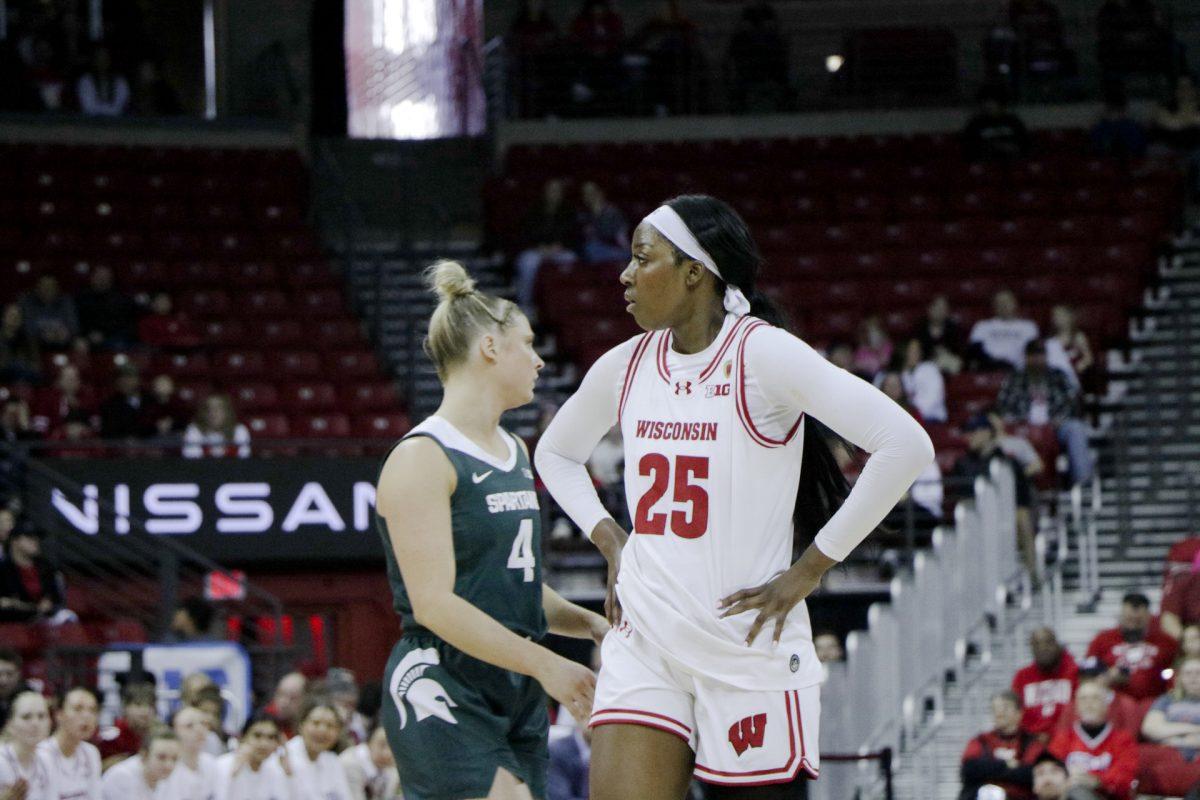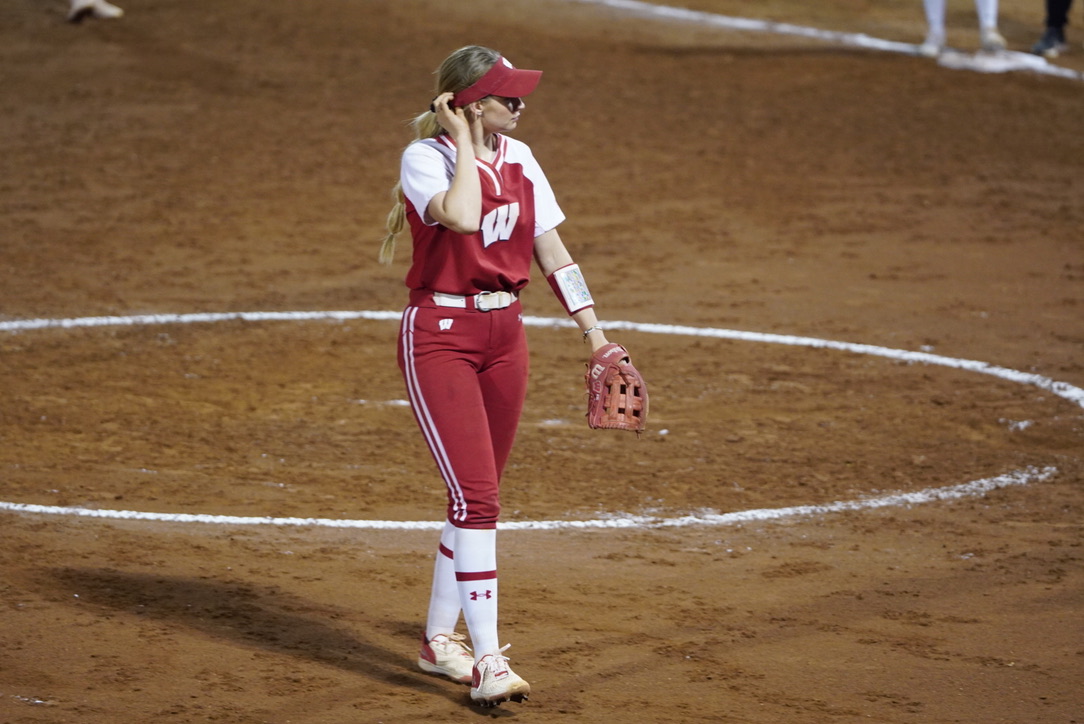In the days since the Wisconsin football team muffed its chance at reversing the gloomy narrative its season has going for itself, several specific plays have refused to leave my mind alone.
Up 14-3 with under five minutes left in the first quarter, Wisconsin lines up on 2nd and 9 with running backs James White and Montee Ball in the backfield. White is sent in motion and takes position as a flanker to the left of the line, leaving Ball to himself. Ball takes the handoff, but there’s nothing to work with. Gain of two yards.
UW later ran the same play on a 2nd and 10 early in the fourth quarter and lost one yard.
Up 27-17 midway through the third quarter, the Badgers face a 3rd and 1 after Ball scampered for nine yards on the previous play. Both teams bring in the muscle. UW offensive coordinator Matt Canada deploys two tight ends and a fullback with Ball in the backfield. NU defensive coordinator John Papuchis stacks the box with eight defenders.
UW’s Jacob Pedersen motions left to the side of the fullback and the other tight end. Ball takes the handoff with a load of blockers ahead of him, but Nebraska crashes the line of scrimmage immediately with a safety not far behind, and No. 28 gets stuffed for a one yard loss.
Two possessions later, the Badgers line up with an extra offensive lineman – Robert Burge – as a tight end along the right side of the line with Pedersen next to him. So there’s four guys right of center. But the Huskers make a mockery of the attempted fortification and stop Ball for a loss of one yard on first down.
So what is the point of all this?
The above is a representation of how stubbornly uncreative Wisconsin’s offense has been this season and how opposing defenses are zeroing in on Ball. Nebraska repeatedly crammed the box Saturday, amassing seven tackles for loss – not including sacks, and all Canada could do in response was hand off to Ball 32 times for a three yard average.
To compare, the Badgers attempted 28 passes, averaged 8.5 yards per pass attempt and conceded three sacks.
I’ve already spent an entire column this year pounding the table about limiting Ball’s carries to the neighborhood of 20-25 a game. Canada failed at that Saturday. Every time he fails to do that, he jeopardizes the longevity of his prized weapon. He also failed at utilizing White and Melvin Gordon, who combined for three carries and one catch.
But his biggest, most harebrained failure is his refusal to recognize that play-fakes to Ball – despite his underwhelming performance so far – have consistently opened up opportunities for other players.
And what’s more strange is the Huskers essentially dared the Badgers to give the ball to someone else. It didn’t matter if UW tried to disguise its intentions by putting Ball in the backfield by himself and motioning White this way or that way. It didn’t matter if Wisconsin put extra giants on the field to plow the road. Focusing on Ball was a primary objective for the Black Shirts, and they succeeded unquestionably – Balls’ three touchdowns from less than three yards out doesn’t constitute as running wild.
Canada needs to stop kidding himself and realize the potential value Ball has as a decoy. Two of Jared Abbrederis’ touchdowns have come off play-fakes to Ball with a third coming off one to White. The up-and-coming Gordon has frequently benefited from misdirection plays where a feign to Ball has led to nice and easy sweeps to the outside for Gordon where open space awaits.
This is not to say that Ball is a has-been, like Randy Moss. When given holes to run through, Ball still makes the most of them. But Canada had no interest in experimenting with others when it became clear the Huskers were hounding Ball.
Of course, the rest of the offense will have to shape up some more if it really wants to take advantage of what’s out there. In the first quarter against Nebraska, a double play-action resulted in a wide-open Ball downfield with no safeties over the top. But he dropped the easy, if slightly under-thrown, pass.
In Wisconsin’s last drive before halftime, Stave faked to Ball and then seemingly hit Pedersen for a 25-yard gain, but replay reviews showed Pedersen failed to secure possession.
Stave’s decision-making could also improve, obviously. But Canada needs to let his quarterback do more on third down situations. No more of these wishy-washy screen passes to tight ends – especially when the defense has already established a presence in the backfield. Stave has already demonstrated an ability to throw deep and over the middle. He can’t be cradled forever.
Many of the players and coaches that made Wisconsin’s offense a juggernaut over the past two years are gone, and Canada isn’t going to make anyone forget about the goners if he keeps clinging to guys like Ball and Abbrederis. There is talent on this offense that has not yet been properly utilized, and until Canada figures out a way to incorporate it, the whole system’s going to fail.
Elliot is a fifth-year senior majoring in journalism and philosophy. Tell him what you think of Canada’s playcalling via email ([email protected]) or Twitter (@elliothughes12).



















